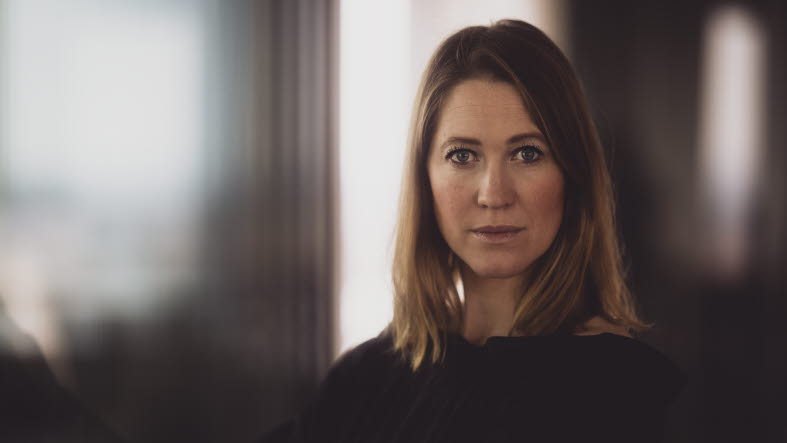An expert on social sustainability

After several years of academic research in economics with a focus on social sustainability, Emma Heikensten wanted to compile and spread knowledge rather than creating the knowledge herself. She has since worked in the intersection of advanced analytics and sustainability to highlight issues, increase knowledge and create efficient ways to implement solutions. Today she is working at SEB Asset Management as a senior sustainability specialist. For the upcoming Financial Equality campaign she has multiple suggestions on what the bank can do to increase equality in the financial markets.
"My goal is to raise the knowledge of sustainability related topics, to serve as an adviser on issues relating to social sustainability and make sure that we improve our portfolio from a sustainability perspective," says Emma Heikensten, senior sustainability specialist at SEB Asset Management.
She joined the fund management company a year ago but has been with SEB for four years, and throughout her career Emma has focused on sustainability. She has a background as an academic researcher, and four years ago she completed her doctoral degree in economic. In her research, she focused on gender differences in financial behaviour and on how to get people who save a little start saving more.
You have a background as a researcher. Why did you make the move to the financial sector?
"There is so much great research out there that do not reach the private sector. I wanted to working with spreading and implementing that knowledge, rather than conducting my own research. Contributing to making people, not least those working in banking and finance, more aware of research findings is a condition for becoming more sustainable and improving financial equality"
What does financial inequality look like today, and why?
"It's characterized by women having lower pay and lower savings, compared with men. Women also have lower ownership of real estate and cars. In addition, women are underrepresented as owners and in senior positions in the private sector, thus don’t have the same opportunities to influence.
When it comes to the reasons for financial inequality a main barrier are the norms in society. Among other things, our choice of education and profession, as well as our propensity to save and invest in shares, are affected by the environment in which we grow up and the society in which we live. Directly or indirectly, these norms also influence women to work part-time, which in turn leads to lower incomes. This is partly because primarily women take care of the children and look after the home, while men to a greater extent take care of the family’s finances. Even though this division of household responsibilities does not exist to the same extent today as previously , we have not yet adjusted our norms and the society accordingly."
What are the biggest negative consequences of financial inequality?
"At an individual level, financial inequality implies that women do not have the freedom and independence that savings and ownership could bring. As a consequence, they may find it more difficult to resign from a job they do not enjoy, do not have the same opportunities to make a career change or start their own business.
In a broader perspective, this may become a democracy problem. After all, much of the power in a society lies in the business community and the private sector. If certain groups are not included in then decision-making, their perspective will not influence how the society develops."
So what can SEB do to increase financial equality?
"As previously mentioned, it’s important to highlight the problem. It's critical that large companies such as SEB take a stand, which we do through the Financial Equality campaign.
It would be great if SEB could set measurable quantitative targets in terms of the proportion of the bank’s customers who should be women, and then work actively to achieve these targets. If we work to ensure that women save as much as men, we will also be working for a better society."
Is there anything specific that you hope the campaign will lead to?
"I hope that more women will feel empowered to start a business or enter into the financial sector. I also hope that by taking this position, SEB contributes to the knowledge and understanding that not everyone has the same opportunities."
